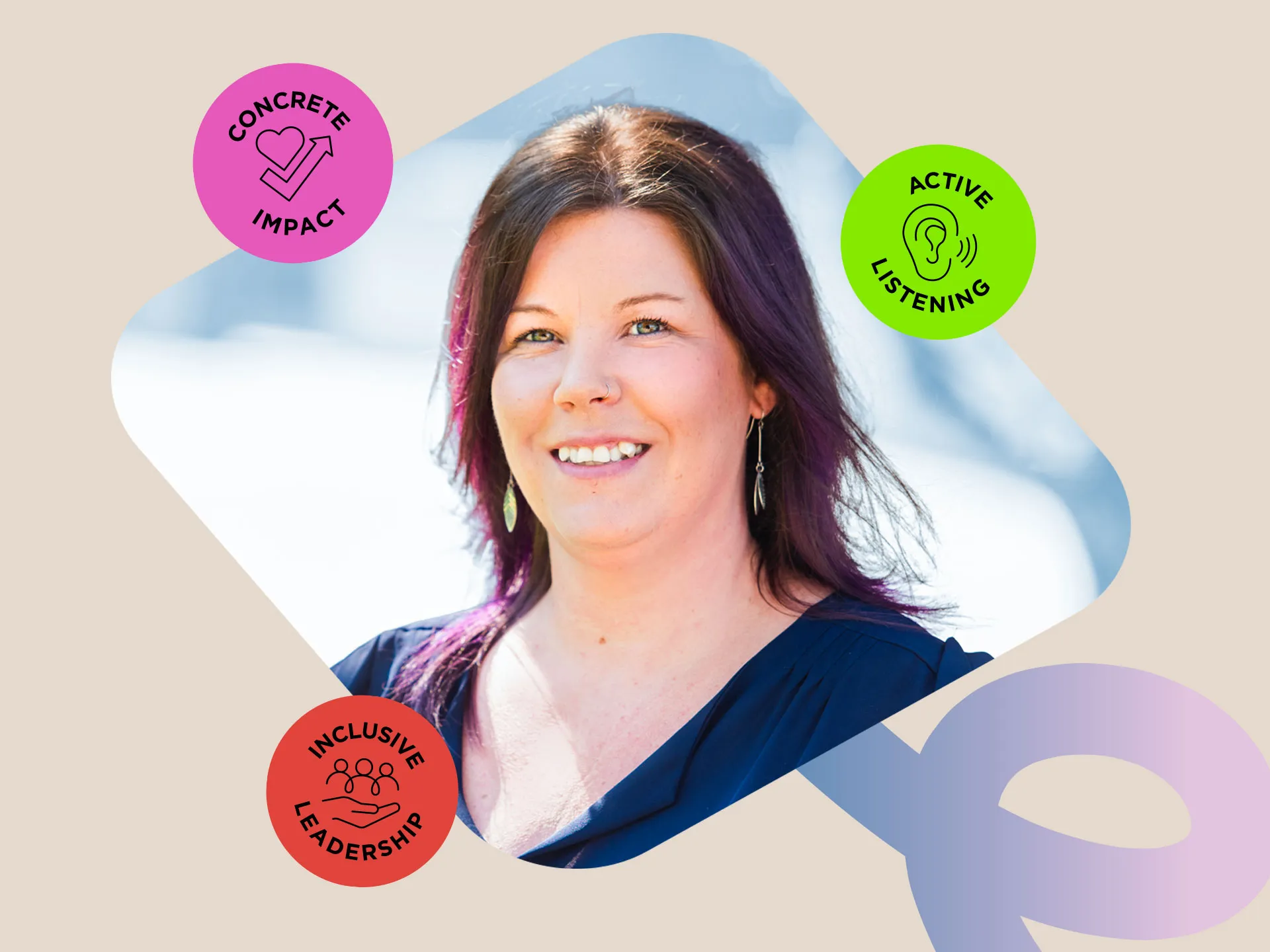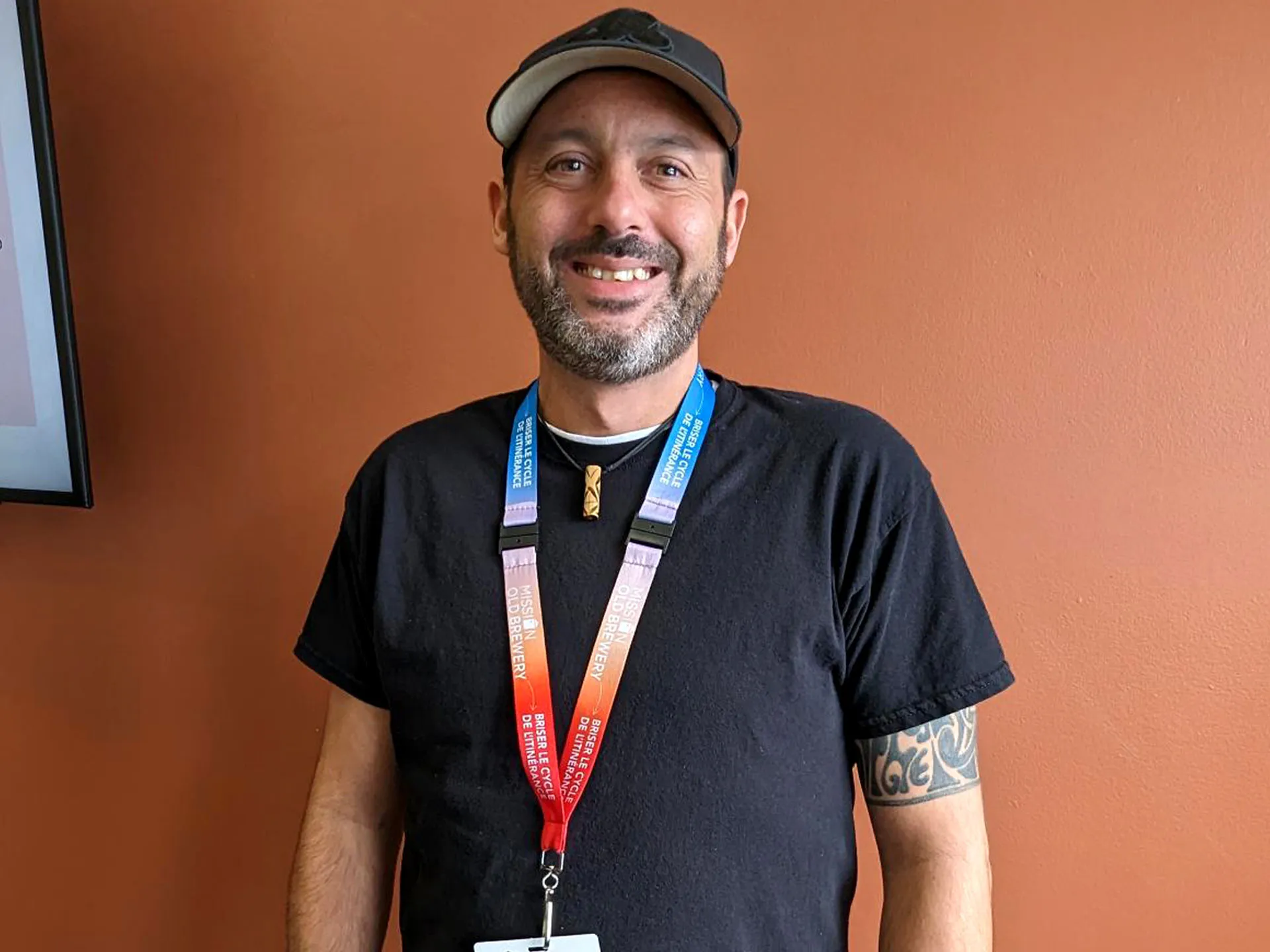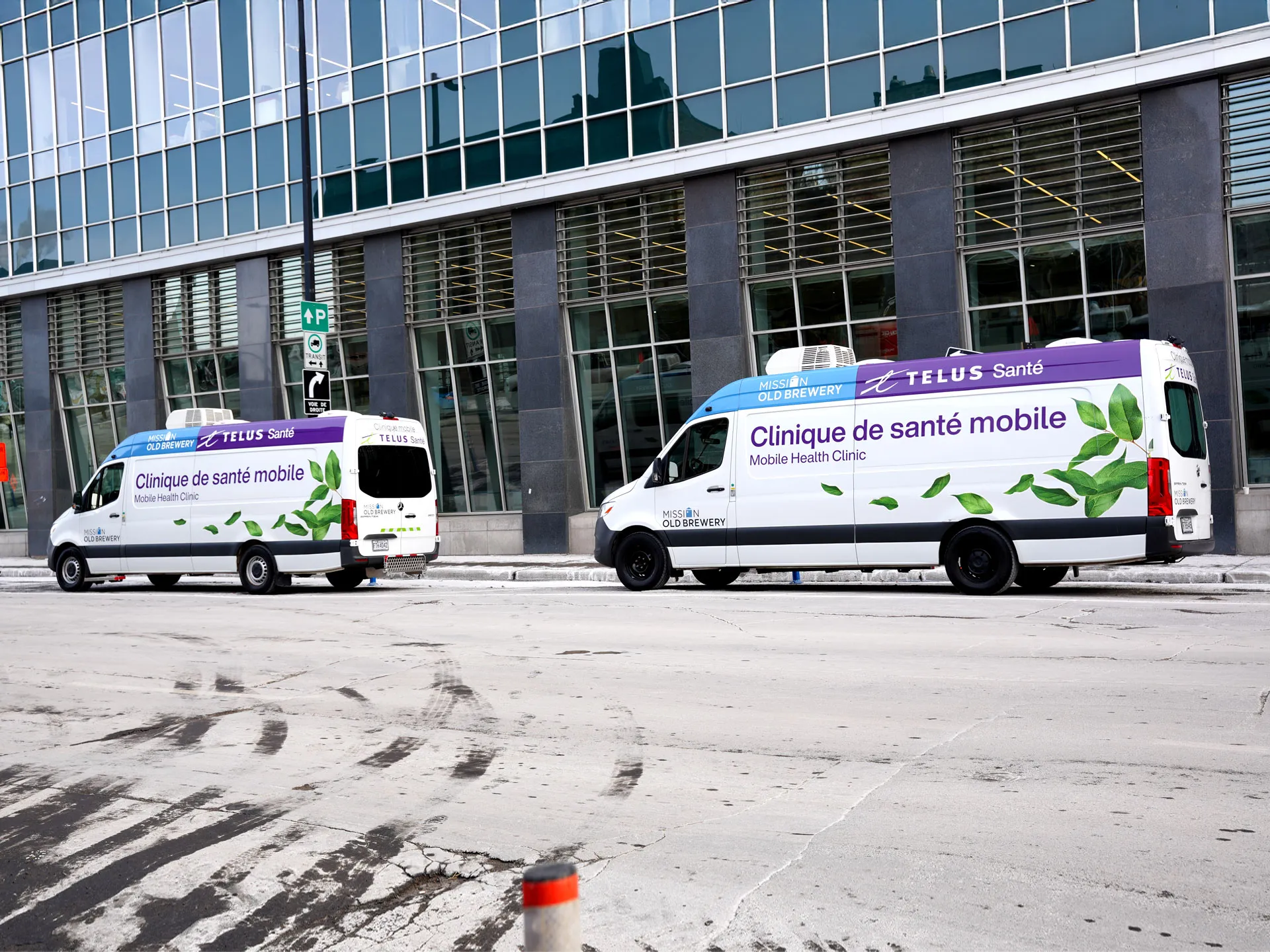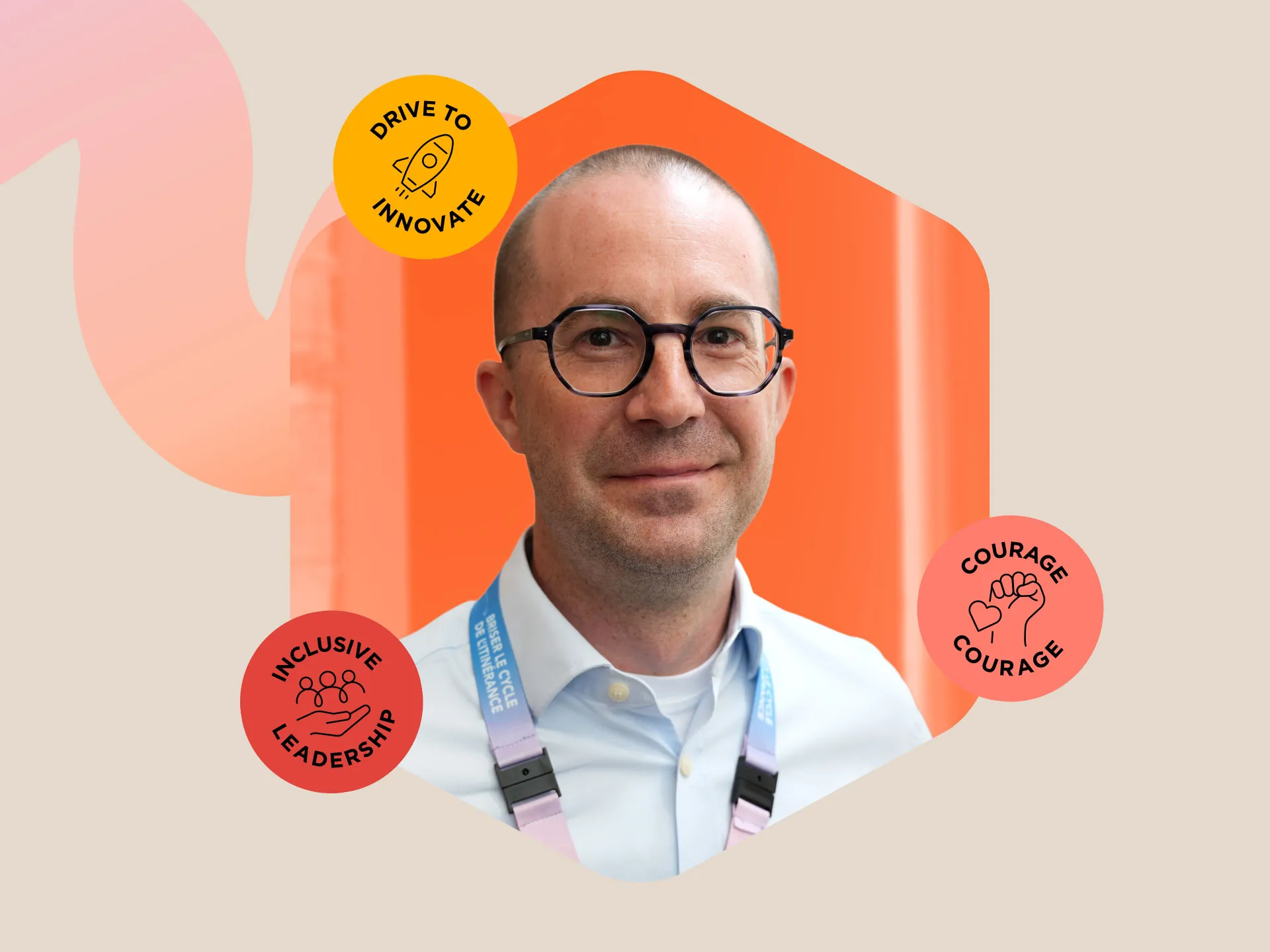
Meet Vincent Dubois, Onboarding and Training Coordinator

Vincent Dubois, Onboarding and Training Coordinator at the Old Brewery Mission.
We caught up with Vincent Dubois during his orientation day for new employees at the Old Brewery Mission. He shared his rather atypical journey from the Saguenay to Montreal, how he came to work with people experiencing homelessness, and his thoughts on the importance of empathy in the field of social intervention.
Hi Vincent, could you please tell us a bit about yourself and what you do here at the Old Brewery Mission?
Yes, certainly. My name is Vincent Dubois and I’m from Arvida, a small town in the Saguenay region of Quebec. I’m the onboarding and training coordinator at the Old Brewery Mission.
All new employees have an orientation day with me. I give them an overview of the Mission—who we are, the clients we serve, the services we provide. I also go over the collective agreement and the employee handbook. Personally, I think that everyone needs a day like this when they’re starting a new job, even at a non-profit. It’s fun and a great introduction for them.
A large number of those taking part in the orientation day will be working in intervention, but some will be working in the kitchen, the office, housekeeping, etc. And they come from all sorts of backgrounds.
The goal is to prepare them but I keep the information fairly general. No doubt they will see things here that are not too common in the lives of ordinary citizens. This can be intimidating. I take them on a tour of the Saint-Laurent Campus, including of the Mission’s emergency accommodation here.
Before taking on this training role, you were an intervention worker. What was it like when you started and how is the integration process different today?
When I started, I was already familiar with this type of environment. I had experience working with this clientele and I knew all about drug and alcohol addiction. But it still took me about a year to learn about the Mission’s many different services. If you work evenings, nights or weekends, you may not know about the PRISM program, for example. So now we take the time to give an overview of the Mission, from A to Z. Of course, I don’t explain all the programs from top to bottom because I don’t want to overload them. I go into greater depth in the training courses I give for intervention teams.
I remember that for my first shift at the Mission, they put me on the phone at the front entrance. There was a card system, and they explained to me that anyone wanting to enter had to show their card and if they didn’t, they wouldn’t be allowed in. Everything was going well until a fellow arrived without a card and I refused to let him enter. Then another employee tapped me on the shoulder and said, “Hey, that’s our director, you know.” I had refused entry to the CEO! Later he came to see me and said, “You were just doing your job and that’s exactly what we want!”.
What made you decide to work in this field?
That’s quite a story. I had serious addiction problems when I was younger—I was basically a high-functioning alcoholic and drug addict for many years. It’s strange but I always had good jobs and they were always in management, despite my substance abuse and problems with the law. That is, until I went off the deep end and lost control.
I ended up having to go to court and that was when I stopped drinking and doing drugs. I moved to Montreal to live with my mother but I couldn’t find a job because my case was pending in court. So I decided to do some volunteer work. I went to a place in Hochelaga called CAP St-Barnabé, where they had me serve coffee to people experiencing homelessness. That’s how it all started.
Finally, do you have any advice for someone wanting to become an intervention worker?
There will definitely be things that upset you, but you are there to support people. You need to have lots of empathy and be a good listener. Listening is extremely important. Intervention work is also about listening.
Dernières nouvelles
-
 Meet Jacinthe Corbin, Director of Housing Support Services
Meet Jacinthe Corbin, Director of Housing Support Services -
 The Old Brewery Mission and TELUS Health for Good launch second mobile
The Old Brewery Mission and TELUS Health for Good launch second mobile -
 Homelessness in the downtown core: We must house, care and innovate
Homelessness in the downtown core: We must house, care and innovate -
 Meet Jean-François Dagenais, Vice President of Finance, IT and Facilities
Meet Jean-François Dagenais, Vice President of Finance, IT and Facilities -
 Old Brewery Mission unveils new employer brand
Old Brewery Mission unveils new employer brand - See all news